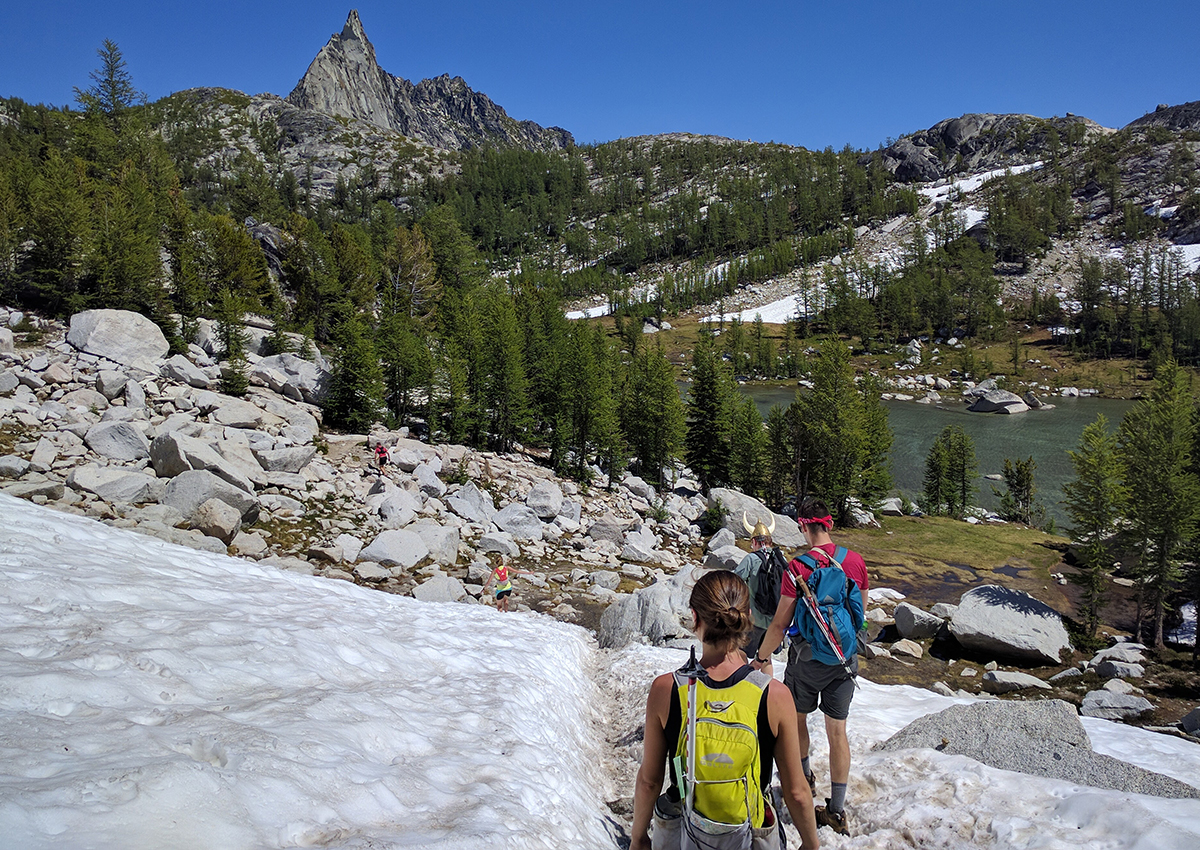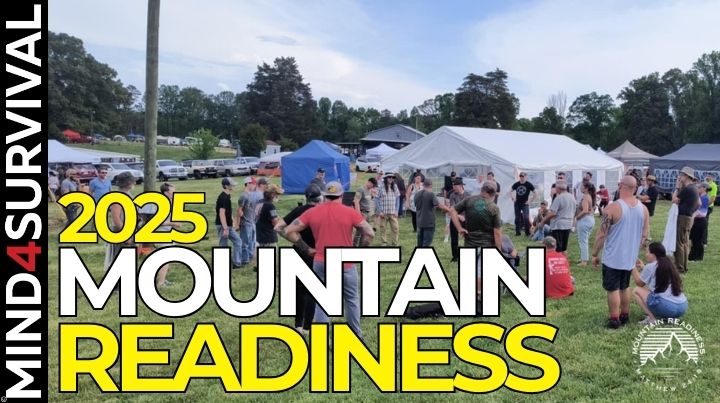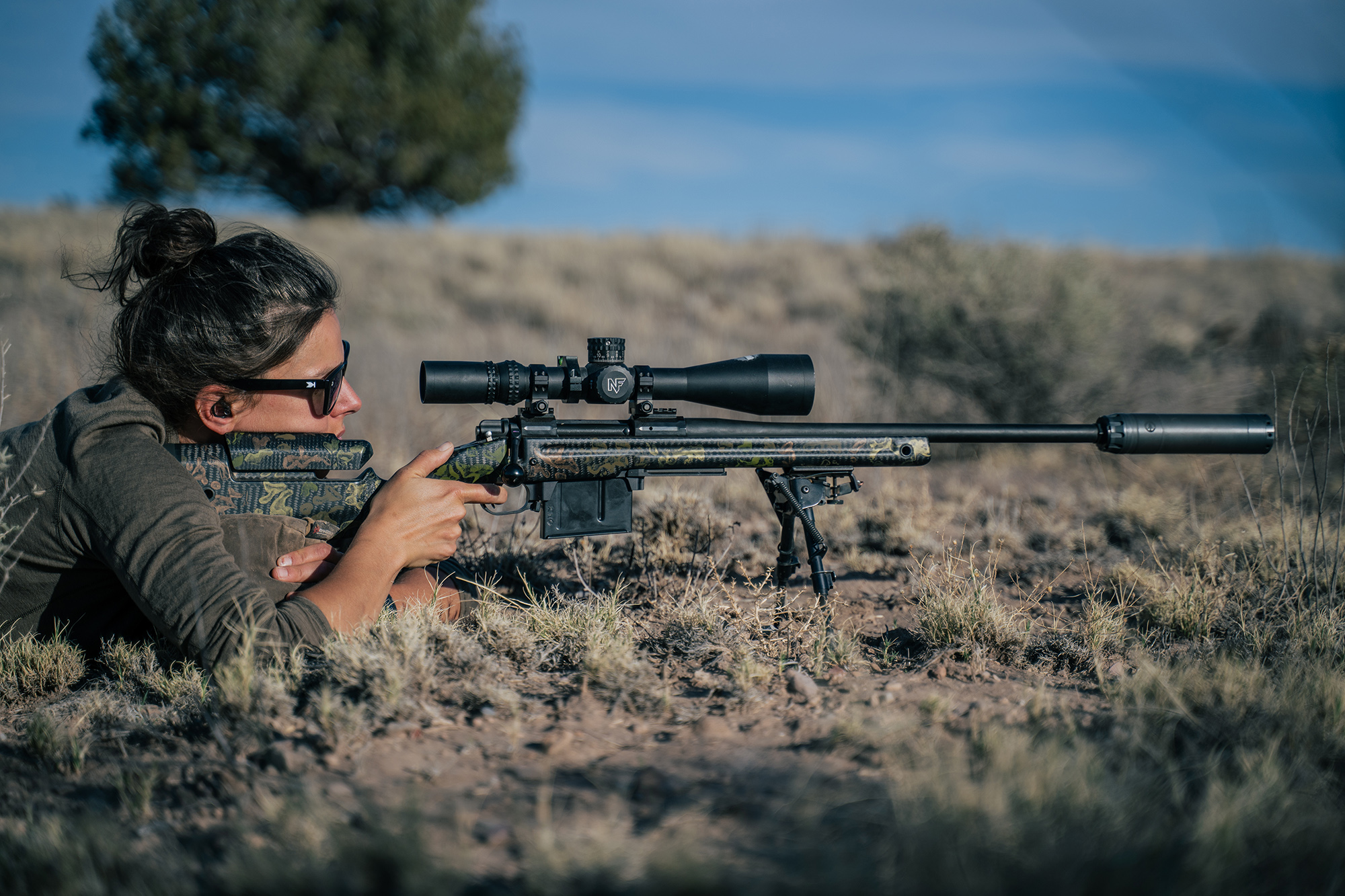I Didn’t Trust My Sled Dog. My Poor Judgement Nearly Killed Us All

This story, “Bitter Trek,” appeared in the June 1953 issue of Outdoor Life.
Cold is king in the winters of the land where I make my living. I knew that. But half a lifetime of trapping in the North caused me to stake my life on my own judgment. I should have listened when the wind and the weather and the instinct of my lead dog told me I was wrong.
With my toboggan and team of five dogs, I had come to the town of Churchill, Manitoba, from my cabin 25 miles upstream to obtain supplies. I was delayed in starting back to my trapline by a three-day storm. A high wind blew continuously out of the north, alternately howling and whistling as it swept the snow before it in a choking, blinding curtain that made travel impossible.
The morning following the storm’s end the thermometer on the outside of the Hudson’s Bay Company store showed 35° below zero and a northwest wind made the air bitterly cold. I decided to set out in spite of the weather.
To avoid the rough, hummocky ice that covered the river channel, I traveled the ice close to shore, the same route I had taken in coming to town. The spring tide from Hudson Bay had raised the river three days before. I could tell from the frozen floodings alongshore that the strong north winds had raised the tide higher than normal. This fresh ice proved strong enough to support the dogs and the toboggan.
Several miles below Mosquito Point I saw ahead what looked like smoke from a great forest fire. But I knew it was vapor rising from the open water of the rapids, half a mile above where I had made the crossing on my way to town. As I drew close to the shore of the wide river, I was amazed to see that the vapor had cut me off from shore on my old trail.
Swinging the dogs sharply off the trail, I drove back past the lower end of the vapor and turned toward shore. We were within 200 feet of landing when we came to the fresh ice of the recent floodings. If it did not hold, I believed there would be only a few inches of water under it, so I started the team across. We had gone but a few yards when Chen, the lead dog, stopped and turned. I could see no reason for this. The ice was well frosted and appeared much the same as some we had traveled since leaving town.
“Marche! Marche across,” I urged. Chen led toward shore, but soon stopped again and turned to look at me. What was the matter with him? I jumped from the toboggan and struck my heel sharply against the ice to test it. It seemed perfectly solid. I ordered Chen ahead. He obeyed with wide-spread, carefully placed feet, reluctance in every step.
Then, halfway to shore, the ice collapsed under the dogs. But Chen was within a few feet of shore. I ordered him to keep going. He obeyed, swimming now and breaking the ice ahead of him with his forepaws. The toboggan balanced on the edge of the splintering ice as I leaped off to help the dogs. I was horrified to feel the sting of freezing water up to my knees.
I waded forward with my ax to help Chen break a path to shore. Three steps down the incline of the old ice underneath brought the water up to my waist. It would be two feet over my head before I reached him.
“Chen, come back!” I called. He turned immediately. So did the others, but ice cakes tilted and cracked in the scramble. The whole team was swimming now, trapped in an expanding pool of floating ice. The toboggan sagged into the water as I struggled back toward it.
The next 10 minutes were an eternity of increasing anxiety. It looked as if the dogs could not possibly fight their way through. Without their help in traveling, soaked to the waist as I was, I would freeze to death in an hour. Again and again the plucky animals struggled to climb on the ice, but some cakes broke and others tipped under the weight, often forcing a dog completely under water. After several minutes the poor animals began to whine piteously. They were slowing down and swimming lower and lower in the water. Meanwhile, I was helping the only way possible, by pulling the toboggan back toward shallow water, but my legs were growing numb. I couldn’t last much longer.
Then Chen touched bottom. With him pulling on the traces, all the dogs soon scrambled up on the solid ice. There they stood, hump-backed and shivering, trying to shake off the icy water.
“Marche!” I cried, but they just stood there trembling. I had to put the whip to them to get them moving. Otherwise we would all die there — and that very quickly. Whip them I did, until all were making their best speed. Very soon they needed no more urging from me.
The dogs were going to be all right. My thoughts turned to myself. Should I return to town ? Between here and there were seven miles of nothing but snow and ice. I’d be fro1:en long before I could cover that distance. My only chance to stay alive was to get to the timber half a mile beyond Mosquito Point and build a fire. And there was no certainty I would find a dry tree. For -more than 300 years this small stand of spruce has been kept constantly stripped of dry wood, in early days by Eskimos and Indians, and more recently by Indians and the white men.
We soon passed the flooding and reached the shore. There I traveled along the snow — warmer than ice for my feet — but in spite of this my soles were soon stinging. I was beginning to freeze. No wonder, I thought, disgusted at my own stupidity. Over Indian moccasins, I had foolishly worn four-buckled overshoes, bought for town wear, which I was taking with me for use around the cabin. The rubber soles were holding the water. I felt it around my ankles. Those overshoes had to come off fast. “Whoa!” I called and the dogs jerked to a stop.
Quickly I pulled at the legs of my overalls. They were frozen as stiff as stove pipes. I hacked at the ice-sheathed cloth with my pocket knife until the cuffs were split as high as the top buckles. Ice-coated, the buckles unloosened only after several minutes’ hard work. Then I found the overshoes had frozen to the moccasins. Again and again I yanked at those shoes with smarting, white-frosted fingers, stopping every few minutes to restore their power of movement by blowing on them or putting them back into my mittens.
Pulling and jerking this way and that, I gradually felt the shoes loosen. First one, then the other came off, each releasing a load of icy water.
At my command the dogs lunged ahead again and we continued up the river. Presently the toboggan passed close to a root of driftwood. It was dry spruce, so I cut it off with the ax and put it on the load.
A few minutes’ travel brought us opposite the-first tree. We drove the 50 yards from shore to reach it through two feet of loose snow. There we stopped. The lowest branch of this green spruce had been partly torn loose about a year before and now hung dead and dry. Its fine, dry twigs would provide the best possible material to start a fire. Beside me was a big, moss-covered stump. Striking it with the ax, I discovered a soggy, rotten mass with a hard, dry outer shell. This I cut off and split.
Here were the makings of a fire, but could I start it?
I took out my match safe and went to work. My fingers were so numb I couldn’t hold the matches tight or judge how hard I was pressing. The head of the first broke off. So did the second. When the top of the third flew, I stopped to take stock. There were only 15 left. Unless I devised a different method than striking them on the rough side of the case, I would soon have none. Taking four and holding them carefully between the fingers of both hands, I rubbed them on the back of the ax head. They burst into a strong flame.
I held my breath as I applied them to the fine twigs. Would the flame catch? It did. Never in my whole life had fire looked or felt so good. I warmed my hands until the numbness was gone, but my finger tips, thoroughly frostbitten, stung more than ever.
If I could get the frozen moccasins off and change my footwear before the fire burned out, I would be all right, I assured myself. Two pairs of heavy wool socks and a pair of felt shoes, my last purchase in town, were on top of the load. They were the only articles still dry. I cut green boughs, piled them near the fire and sat on them to change. The moccasins had to be thawed on my feet before they softened enough to work off. The socks came with them; they were frozen together. I hurriedly pulled on the dry footwear, and not a minute too soon, for the fire had practically burned itself out.
All this time the dogs had been as busy as I, industriously pulling the ice off their feet and licking them dry.
Ice filled every space in the load and formed a sheath around it and the toboggan. I broke off what I could with the ax in order to lighten the going for the dogs, but I knew that, even so, they’d have twice the former weight to haul. Probably I would have to travel afoot all the rest of the distance to the cabin, but I was quite warm in spite of the wet clothing on my legs. Perhaps my chances were better if I did not ride.
“All right, boys. Away we go!” I called and the dogs got to their feet. “Marche!” and we were away. Apparently their feet, like mine, were now in excellent shape. Tongues had done for them what fire and fresh footwear had for me.
But it was still 17 miles to the cabin, and hard going until we got back on the river. There the ice on the bottom of the toboggan made pulling easier and I abandoned my philosophic attitude toward traveling the entire distance on foot. I gladly rode, except for occasional short runs to keep up body heat.
As we skimmed along the ice and hard-packed snow, I mentally reviewed my good fortune. Well for me that I had found enough dry wood to make a fire and that the new socks and shoes had remained dry. Thanks to this combination of circumstances, the danger of freezing was a thing of the past.
I was in a fool’s paradise. Within an hour my feet were again soaking wet. The water in my underwear, kept from freezing by the heat of my body, had gradually seeped down into my socks.
I was in a fool’s paradise. Within an hour my feet were again soaking wet. The water in my underwear, kept from freezing by the heat of my body, had gradually seeped down into my socks. When still four miles from the cabin, I felt the soles of my feet begin to sting ominously. There was no possibility of building a fire before I got there — the banks of the river were lined with nothing but green willows. Again I had to run continuously. And now it was no easy task, because the stiffness of the overalls prevented me bending my knees. At each step I struck my feet hard against the snow in the hope of keeping them from freezing. I was grimly thankful for the bi ting sting. That indicated my feet were not yet frozen.
At last I saw ahead of me a familiar landmark, the island near the cabin. “A mile to there, a mile from there to home,” I found myself thinking. But I could run no farther. My lungs felt about to burst. I was taking in cold air faster than I could warm it. Jumping on the back of the toboggan, I rode until I could breathe freely. And all the time I kept pounding my feet. Was I to freeze after all? I was gripped by a new fear, the trapper’s greatest tragedy — frozen feet that would cripple me for life even if I pulled through.
Several more times I had to ride in order to get my breath. I knew at heart that the dogs were keeping up their steady pace, but I had a horrible feeling that they were gradually and steadily slowing down. I had to keep a tight check on myself not to urge them beyond their power.
At last the island was behind us. A little further on we rounded the point and came in sight of the cabin. The dogs quickened their speed. My heart lifted. We were home!
The dogs needed no second invitation to halt, and almost before they dropped exhausted on the snow, I had pushed open the familiar door covered with caribou skin. I was hungry, cold, wet, and thoroughly miserable. But kindling and wood had been left ready against my return and in spite of sore, stinging fingers, a fire was soon roaring in the stove.
Dusk was closing the short November day, so lighting the lamp came next. Then I turned to the stove to warm my stiff hands and get both feet against the heat. As it penetrated my felt shoes and socks, the soles of my feet became sore. a condition explained a few days later when the skin began to peel. The soles had been frozen.
I went outside to fill a pail with snow to melt for tea. The dogs were sleeping so soundly that not a head was lifted in anticipation of supper.
The tea pail was on the stove before I fully realized every garment below my waist was either wet or sheathed in ice. Crowding the stove, I thawed out underwear, socks. and trousers, and put on a complete change of clothing. For a time hunger had been forgotten, but now it swept back — devastating, gnawing hunger. As I moved around the cabin preparing food, each step sent a stinging, darting pain up from the soles of my feet into my legs. But that supper was a banquet. It was caribou steak, slivers of it hacked off a frozen hindquarter and cooked in butter in a covered pan. By the time the frost was out of the meat, it was ready to eat, warm and soothing to my tired and hungry body. Strong tea, the stimulant of the north, and bannock completed the menu.
The dogs received my attention next. This had not been unnecessarily delayed. I had to look after myself, for without me the dogs were helpless. As I unhitched, I discovered their fur was stiff with ice. They would have to be dried if they were to know warmth or comfort before spring, and the only place to do it was in the cabin. I took Chen in first. That was the first time he or any of the other dogs had been fed in the cabin. Sleigh dogs no more belong there than draft horses in a dining room. The other dogs were fed a well-earned supper of great northern pike at their hitching posts outside.
Shoving, pushing, sweating, and talking to myself, I got the toboggan into the cabin.
The huge fire in the stove had little effect on the coated ice that evening. The rising heat only melted the frost that had collected between the logs of the roof during my absence. Drops of water fell on the stove, sizzled, and rose again as steam. Drops fell on the table, on the bunks, and on me, no matter where I stood. But no drops fell on Chen. He had crawled under the table to which he was tied and was lying as far from the stove as his length of chain would allow.
The load on the toboggan would take a lot of thawing before even the top articles could be freed. Hour after hour of roaring fire had little effect on the ice and just as little on the cabin’s chill. This was a strange situation. Generally the cabin heated quickly, even when the temperature was as low as the thermometer outside the door showed it to be that evening, 40 below zero.
Every hour or two I awakened and filled the stove with wood. The chill in the cabin was lessening very little. Each time I crawled from the sleeping bag the block of ice seemed longer than its 12 feet. Its coldness and its significance made me shudder. Each time I awakened it was to start with horror. It became a frosted casket waiting beside my bed. I could not take my eyes off it until exhaustion closed them.
But by morning the continuous heat thrown off by the stove was taking effect. Rivulets trickling down the sides of the load had soaked the entire floor and I began my day’s work by wiping it dry. It had to be done twice more before nightfall.
By noon Chen’s fur was dry enough that frost would complete the job. I took him out. The other dogs were brought in, one at a time.
It took a week of steady fire, day and night, before the last of the load could be pried loose. The center had not been affected, as the extreme cold had caused the quick formation of an outside coating. The one loss was a part of the flour.
The cabin warmed very little until the ice had gone from the load. The toboggan itself, bottom side up, had I another two days to dry. The floor had dried by that time, after more than a week of thrice-daily moppings.
The outer layer of skin on the soles of my feet and the tips of my fingers peeled off and healed in a few days. The swelling and soreness in my legs lasted two weeks.
Read Next: My Dog Saved My Life in a Brown Bear Attack
With the dogs dried, the gargantuan block of ice melted, the toboggan moved out, and the ache in my legs somewhat lessened, I took stock. Two weeks of trapping during the best part of the season had been lost and an extra month’s firewood, scarce in supply and hauled more than a mile, had been burned.
But I was alive. And I’d learned a new lesson after 30 years of trapping in the far north. My brush with death and week of misery taught me that a dog’s instinct can be more reliable than a trapper’s judgment.
Read the full article here







